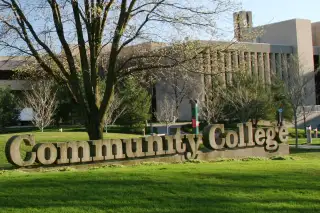Millions of Dollars in Scholarships Can Help Community College Students Transfer to Four-Year Schools

It’s time to put a common misconception to rest: that scholarships are only for freshman entering a four-year college.
This unfortunate misconception discourages many community college students who want to continue their education at a four-year institution but who don’t realize there are scholarships available that could ease the financial burden.
The College Board has reported that as many as eight in 10 community college students surveyed express a strong desire to transfer to a four-year institution. But the majority of them don’t.
If you’re a student at a community college who’s looking to transfer to a four-year school, know that there are many national and local organizations that can help make that financially possible, including Phi Theta Kappa and the Jack Kent Cooke Foundation.
Through its partnerships with foundations and other organizations, Phi Theta Kappa, a national honor society for two-year college students, offers student members nearly $90 million in scholarships to complete associate, baccalaureate, and master’s degrees.
The Jack Kent Cooke Foundation helps promising, low-income, and often first-generation, community college students reach their educational goals. For example, Lori King-Nelson, a Tarrant County College student from Texas, saw her family struggle financially once she enrolled in school. But a transfer scholarship from the foundation made a huge difference. “To know things are going to be okay over the next few years while I finish my degree is pretty overwhelming,” she says.
CollegeFish.org is a free transfer planning tool available online. Students indicate the community college they are attending, as well as four-year colleges they are considering, and the system will identify available regional scholarships. This is especially helpful for nontraditional or other students who need to remain in their current area.
Community college students should talk to their academic advisers about additional places to apply. Some good starting points are:
- All-USA Community College Academic Team, sponsored by Follett Higher Education Group and promoted by USA TODAY
- GEICO Bachelor’s Degree Pathways to Completion
- Pearson Scholarship for Higher Education
- Coca-Cola Academic Team and New Century Scholars, both sponsored by the Coca-Cola Scholars Foundation
- Hispanic Scholarship Fund
Amy Weinstein is the executive director of the National Scholarship Providers Association (NSPA). NSPA members help students get to and through college with support services and scholarships.
To create your own customized rankings of four-year colleges and universities based on the factors that are most important to you, check out the new Money College Planner. The subscription part of the site also offers a searchable database with thousands of scholarships.